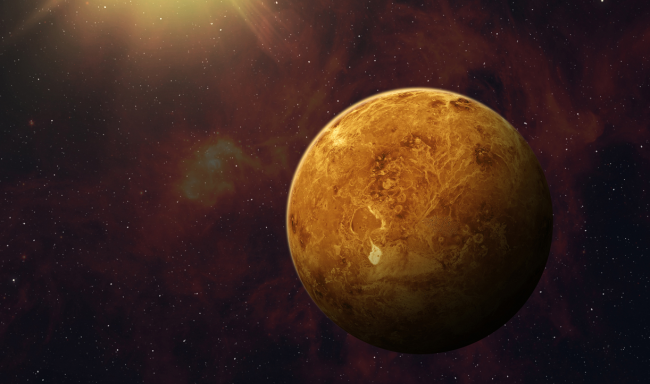iStockphoto
Scientists have been hard at work the past several years trying to find signs of alien life on other planets.
One of the main areas of focus for these scientists, in addition to Earth’s neighbor Mars, has been the planet Venus.
In 2020, research conducted by the Royal Astronomical Society revealed the presence of phosphine in the atmosphere of Venus.
This discovery was significant because, as David Grinspoon of the Planetary Science Institute said at the time, “This could be the first observation we’ve made which reveals an alien biosphere and, what do you know, it’s on the closest planet to home in the entire cosmos.”
Fast forward to 2023 and Jane Greaves of the Royal Astronomical Society has revealed that the discovery of phosphine in the atmosphere of Venus was deeper than it had been located before.
Space.com reports…
Could it be evidence of alien life on Venus?
Greaves said that, on Earth, phosphine is generated by microorganisms living in a very low-oxygen environment. She explained that phosphine is generally not made in other ways on our planet, as Earth lacks an abundance of “loose” hydrogen. This suggests that phosphine, if detected on other worlds, is a potential biosignature.
Venus is often referred to as Earth’s twin or sister planet because due of its similar mass and the fact that many astrobiologists believe it once was also covered mostly in water and had an atmosphere suitable for living organisms.
In 2022, a study by MIT scientists also claimed alien life may exist on Venus.
The MIT scientists stated that they believe that the presence of ammonia could make life a possibility in the clouds of Venus by neutralizing the sulphuric acid in the atmosphere.
“As a result, the clouds are no more acidic than some extreme terrestrial environments that harbor life,” read the report. “Life could be making its own environment on Venus. The model’s predictions for the abundance of gases in Venus’ atmosphere match observation better than any previous model, and are readily testable.”
The hard part, of course, is proving any of this to be 100 percent true.
It’s not like we can just send someone up there to check. Venus has an atmospheric pressure 92 times that of Earth with a mean temperature of 867°F – conditions that would crush and melt down anything that entered its atmosphere.

